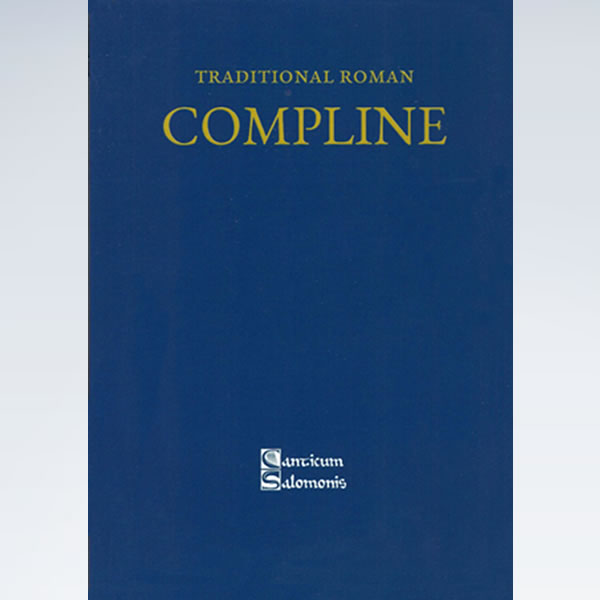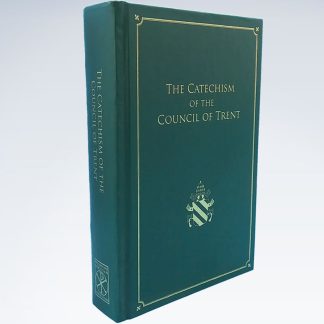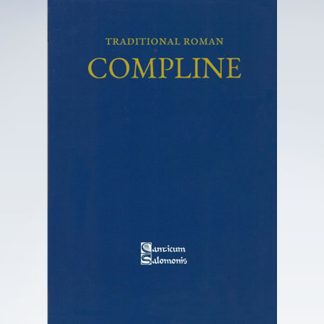Traditional Roman Compline is based on Antiphonale Romanum of 1912, and compiled in direct continuity with the 1568 Breviarium Romanum. Fully notated musically and accompanied throughout by an English translation.
“It contains a Proëm discussing the value and mystical significance of night prayer, ceremonial notes for recitation in choir, all the seasonal and proper festal melodies of the hymn Te lucis, as well as the special Offices said during the Holy Triduum and the Octave of Easter. Perfect for private recitation or communal celebration.
The traditional Roman office of Compline, as codified by the 1568 breviary, had only a minimal amount of variation in the course of the liturgical year, apart from the special offices said during the Holy Triduum and the Easter Octave. Even in these proper offices, the psalms—4, 30 (verses 2–6), 90, 133—and the concluding canticle Nunc dimittis remained unchanged. Here we can see the perfect alignment of the Roman and Monastic uses. With its unvarying daily psalms, traditional Compline is therefore an excellent starting point for persons and communities who wish to begin to sing the hours of the Divine Office.
This beautiful edition, freshly typeset by Gerhard Eger, who also compiled the Benedictiones mensae published by Pax inter Spinas, includes ceremonial notes for the recitation of Compline in choir. Those unable to say Compline in church, however, can easily adapt these rubrics for their own circumstances. The booklet opens with a meditation, borrowed from a 15th-century English Brigittine prayer-book, on the spiritual significance of Compline.
I heartily recommend this booklet to all who wish to unite their voices with those of generations past in a liturgical conclusion to the day’s toils.” ~ Book Review by Peter Kwasniewski.








